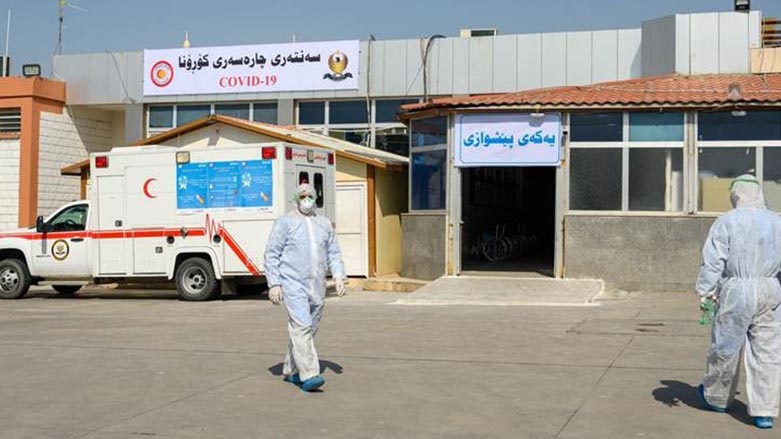COVID-19: Kurdistan Region, again, records highest death toll in past 24 hours

ERBIL (Kurdistan 24) – The Kurdistan Region’s Ministry of Health on Monday announced over 460 new coronavirus cases along with a record-breaking 24 fatalities due to the disease in the past 24 hours.
The ministry said in a statement that health workers had conducted 4,258 tests over the same period, 463 of which returned positive. Of the new cases, 213 were in Erbil province, 116 in Duhok province, 85 recorded in Sulaimani, and 15 in Halabja province.
The ministry also announced a new all-time high number of fatalities in a single day, with 24 deaths, raising the total amount to 777.
The new record of fatalities come as the region reported 21 deaths in the same period on Sunday, the highest death toll to be announced in 24 hours since the pandemic broke out.
According to official data, the number of infections since the start of the pandemic has reached 21,660, including 12,524 recoveries. The ministry has also conducted 252,551 tests for the virus.
According to the past two days’ figures, the daily infections in Erbil province plummeted to the 200s following its spikes recently, reaching over 400 cases per day. But fatalities in the province have recently been over 10 each day.
The Kurdistan Region has recently seen a surge in coronavirus infections across its provinces, particularly in the capital, Erbil. The situation is similar across Iraq, which broke its daily cases record for a fourth consecutive day on Sunday.
Read More: COVID-19: Iraq reports record number of cases for fourth day
The lack of adherence to precautionary measures by the Kurdistan Region’s citizens is the reason behind the recent surge in COVID-19 cases across the region, per health officials.
The number of coronavirus cases in the Kurdistan Region continues to surge, following an initial increase in late May, as the government relaxed lockdown measures—amid growing financial difficulties—and allowed for the resumption of trade with Iran.
Fatalities or long-term health effects?
However, attention is given to global fatality rates rather than long-term health effects of contracting COVID-19, a report from The Washington Post in mid-August revealed with some concerning results of the preliminary studies conducted on the disease’s long-term effects.
According to a German study conducted on 100 recoveries, 60 of them showed ongoing cardiac inflammation, only after two months of their diagnosis with the virus. Moreover, there are many other anecdotal reports claiming side effects of the disease on recoveries, according to The Washington Post.
Editing by Karzan Sulaivany
